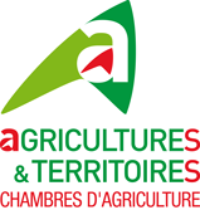Document type: news from Swissinfo
Author: Emilie Ridard
Preview: On Sunday, the Swiss people rejected an initiative on intensive livestock farming, which had sought to enshrine the protection of animal dignity in the Swiss constitution. The view of the majority of citizens was that the current legislation was already sufficiently strict.
The results of Sunday's vote confirmed the trend of recent polls: the Swiss rejected the call for a ban on intensive livestock farming by almost 63%. A majority of the cantons also rejected it. For a proposal to pass into law, a double majority of the people and the cantons is required, so the initiative was thus rejected.
Unlike other votes, this referendum did not produce the traditional Röstigraben split in the vote: the overwhelming majority of regions voted no, whether in the French or German speaking parts of Switzerland or in Ticino. Only the canton of Basel-Stadt voted for the proposal against intensive livestock farming with a majority of 55.2%.
The usual urban-rural divide on proposed agricultural policies did manifest itself, but to a lesser extent than in previous votes, according to pre-vote polling.
The text of the proposal, which was supported by anti-speciesist and animal rights groups, sought to enshrine in the Swiss constitution the protection of the dignity of livestock and a ban on intensive farming. It also proposed that, within 25 years, the welfare requirements for livestock and poultry should, as a minimum, meet the 2018 standards of the Bio Suisse label. These criteria would also have applied to imports of animals and animal products.
On Twitter, the proposal committee has expressed its regrets at having missed an opportunity, but also asserts that it intends to "fight for a Switzerland without intensive livestock farming".
The main factor to influence voters was the severity of the existing Federal Law on the Protection of Animals, one of the strictest in the world.
This law stipulates that anyone who looks after animals must take into account their needs, ensure their welfare and not harm their dignity. It sets minimum dimensions for animal housing and also regulates the training of farmers, animal feeds and transport conditions. [...]
Fear of rising costs
During the campaign, opponents of the proposal warned of rising costs that would be passed on to consumers. They were concerned that this would offer further encouragement to shopping tourism and increase imports of meat and eggs from abroad. [...]
The underlying environmental debate
Although ethics and animal welfare were the stated goals of the initiative, the environment was never far from the debate. After a summer of drought, activists saw the proposal as a means to move towards the adaptation of Swiss agriculture to the global fight against climate change, which requires a reduction in meat consumption and the reallocation of land to produce more vegetables and less animal feed.
Article on the same topic published on the France 3 Auvergne-Rhône-Alpes website on September 22, 2022 : La Suisse s’apprête à voter sur l’interdiction de l’élevage intensif






